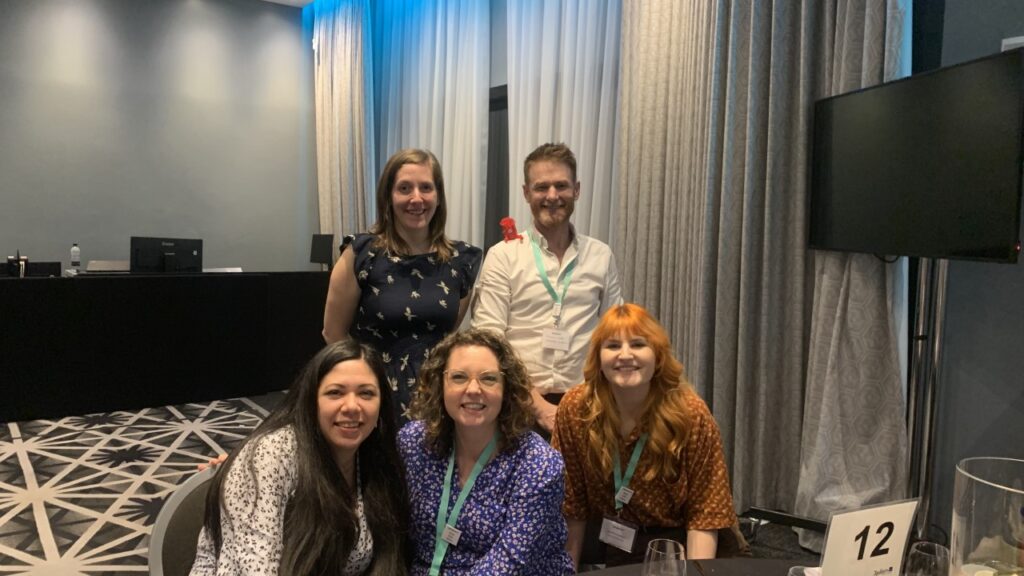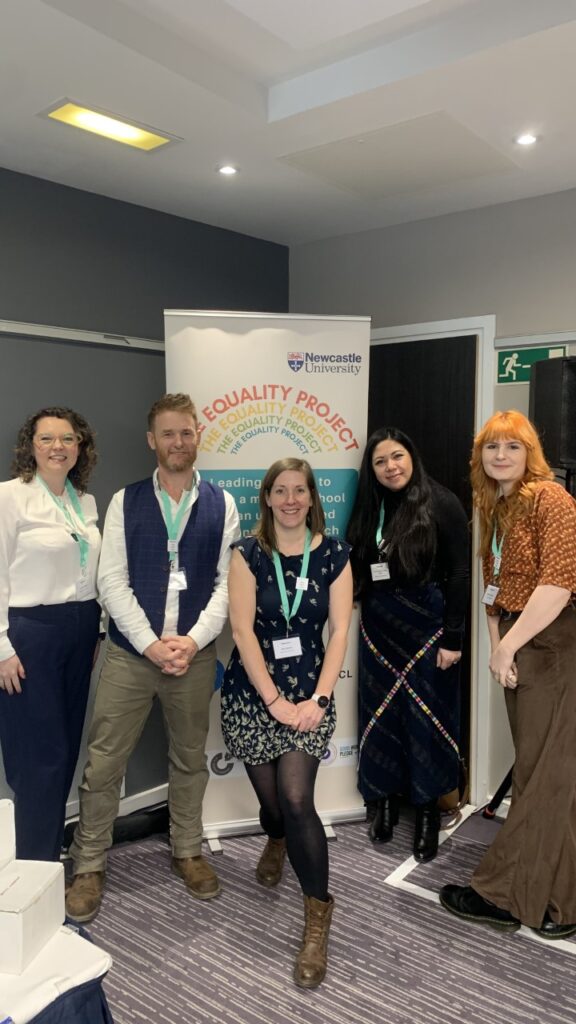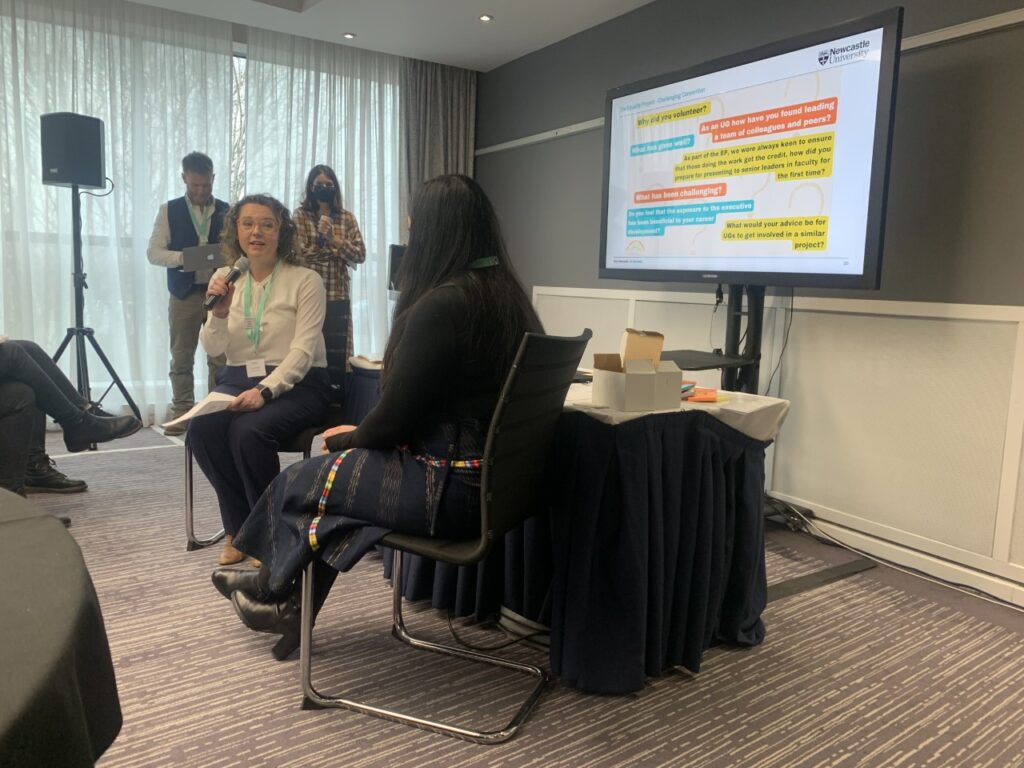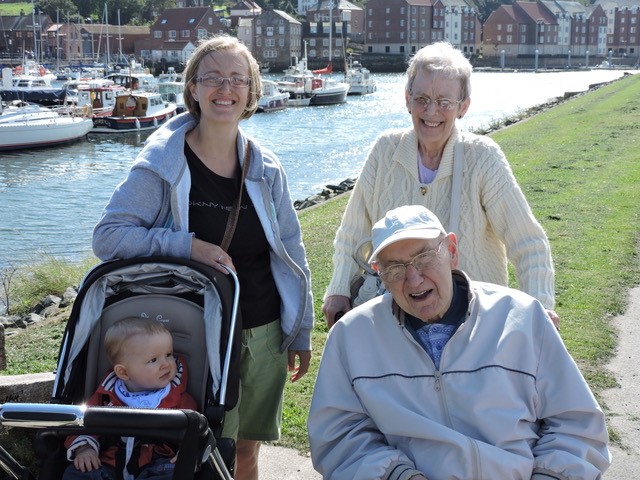As our EDI interns time within the team comes to an end, one of our interns Jasmin has written a blog post to detail her time as the FMS EDI Intern for the last 2 years.
My time in the Faculty of Medical Sciences EDI team has been one of the most valuable experiences I’ve had since starting university in 2019. Going into university I had no strict plan for myself, other than I wanted to get a degree and explore my options in the field of psychology, but ultimately, I hoped to work towards a career in the mental health sector and train to be a clinical psychologist in the future. However, when it came time to apply for placements at the beginning of my second year, I was pushed towards clinical placements like assistant psychologists roles to support my future aspirations. But upon further inspection of the placements advertised, I realised the EDI position, although not in the traditional clinical psychology route, fed into a lot of my passions and interests surrounding neurodiversity, LGBT+ issues, and mental health.
After applying, I was offered the placement on the FMS EDI team and was elated that I could have a year placement learning things I otherwise wouldn’t without a year of first hand experience. The experience I gained from the role has been invaluable to myself both personally and professionally. Having Louise, Damian, Amy, and now Emma as my supervisors throughout my time in the position has been extremely rewarding and I couldn’t have asked for better support and guidance throughout.
In my first year of placement, I began working on the Equality Project. At the time it seemed very daunting to be in such a large scale project for Charter Mark applications like Athena Swan and being surrounded by academics, professional staff, and students from different faculties, but as time went on I realised how warm and welcoming everyone was as we were all working towards the same goals in our work-streams. The project helped me by getting insight into data analysis from academics and researchers, as well as building my presentation and communication skills, to writing the full report for the taught programme workstream. My experience on the project has been nothing but rewarding. As well as this, pitching my own ideas for not only aspects of the Equality Project, but also with EDI events, social media posts, newsletters and other communications has been amazing for my personal development in terms of confidence.
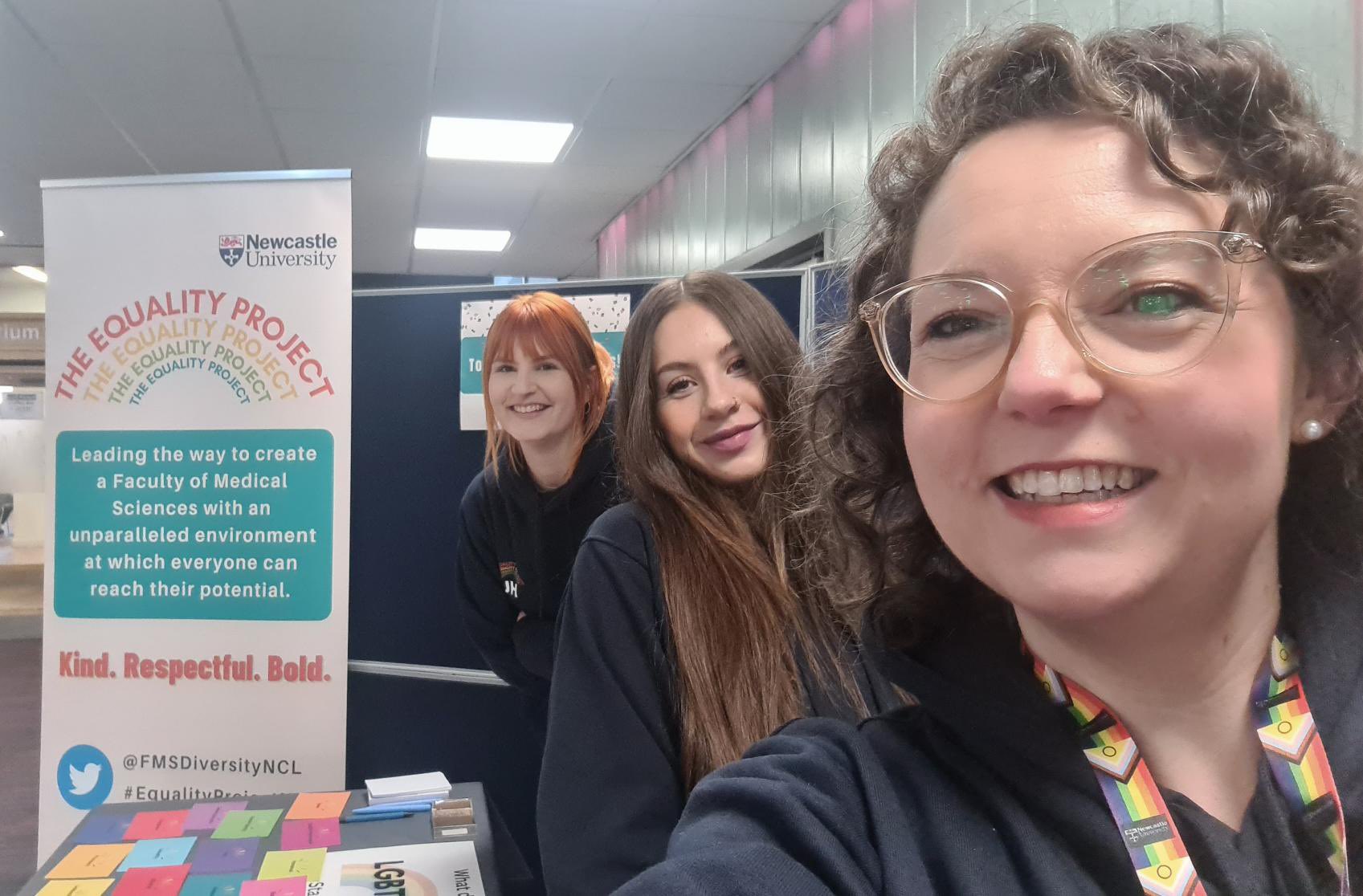
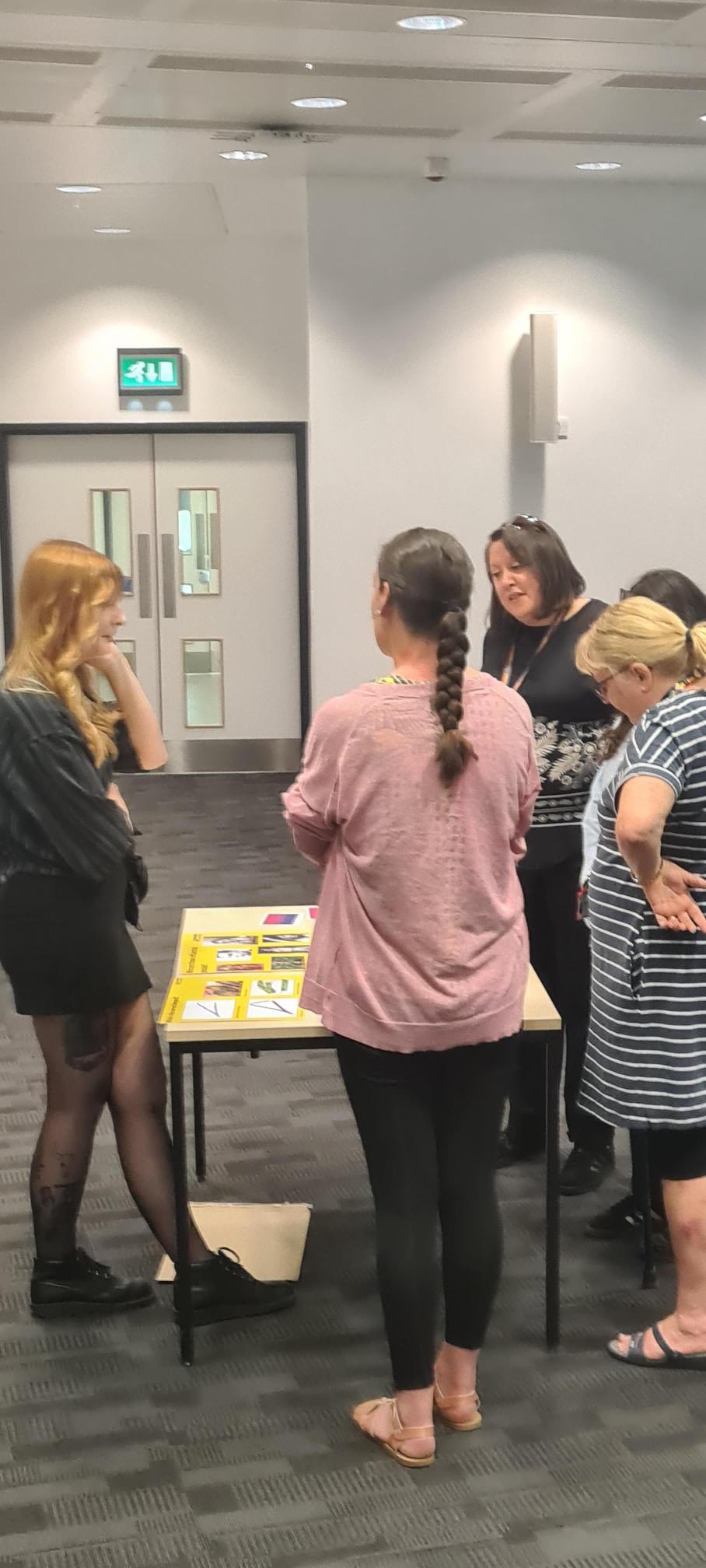
During my placement year I was also invited along to the Advance HE EDI conference in Manchester 2022 to help with the Equality Project Session delivered by Louise, Damian, Amy, and Cristina. This was one of the most rewarding points of my placement, seeing all of the hard work the work-streams had put into the project pay off in a full session, and seeing that many attendees wished to take on a similar project in their own institution. Additionally, the conference allowed me a chance to network with others in the EDI sector and see how my future career aspirations linked to EDI by attending clinical psychologists sessions at the conference. Since then I have had countless more valuable experiences in which I have gained skills I never would have without undertaking the EDI placement.
I continued my placement alongside my studies part time in my final year with Abbie the new intern, and once again having this experience to develop further skills, but also upkeep the skills I had learned surrounding surveys, data analysis, and report writing helped me in countless ways during my dissertation. As well as this, taking part in planning and attending events like our International Women’s Day event was an amazing way to celebrate the inspiring people at the university and see how much EDI events and initiatives mean to those who are recognised.
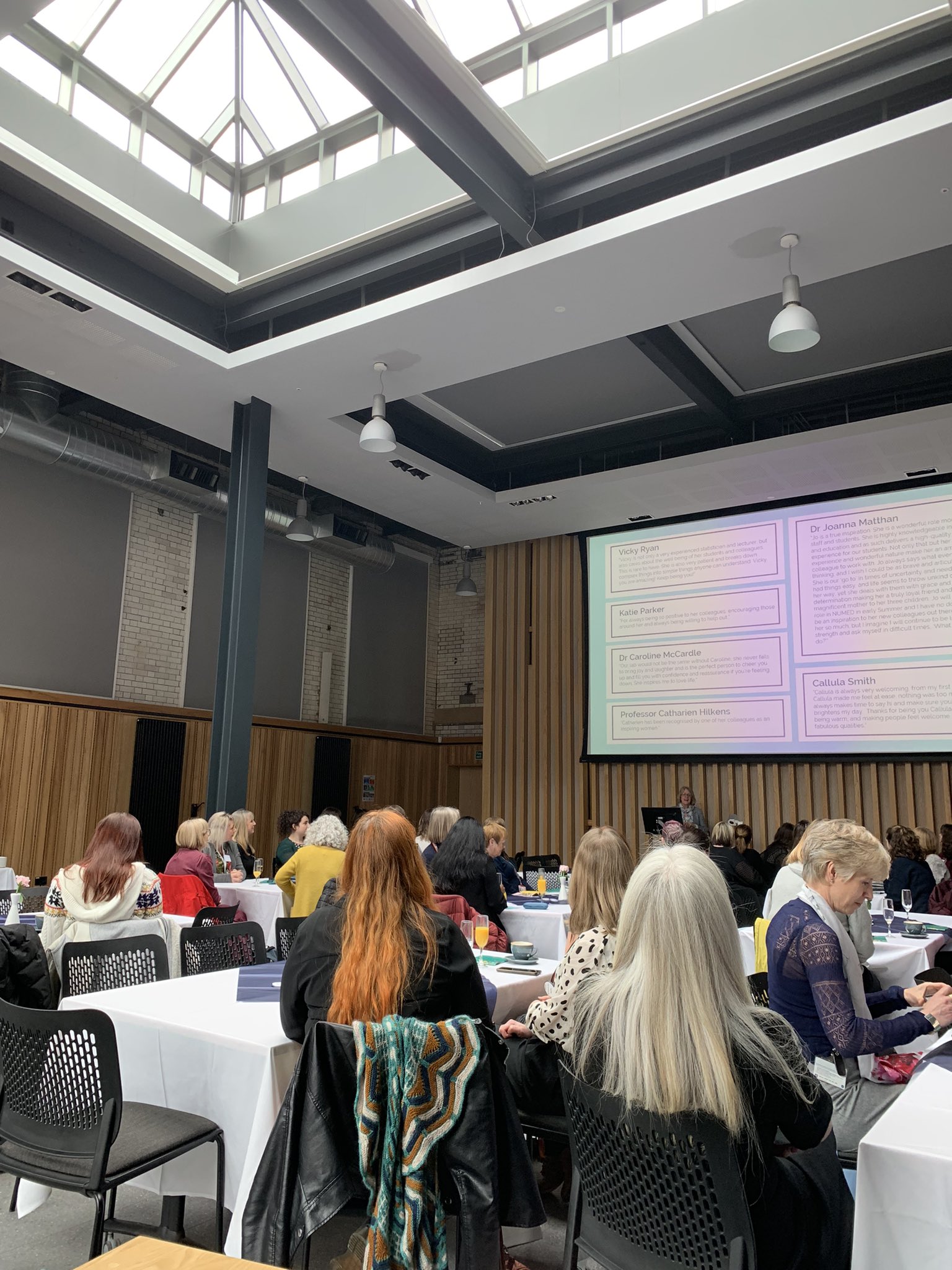
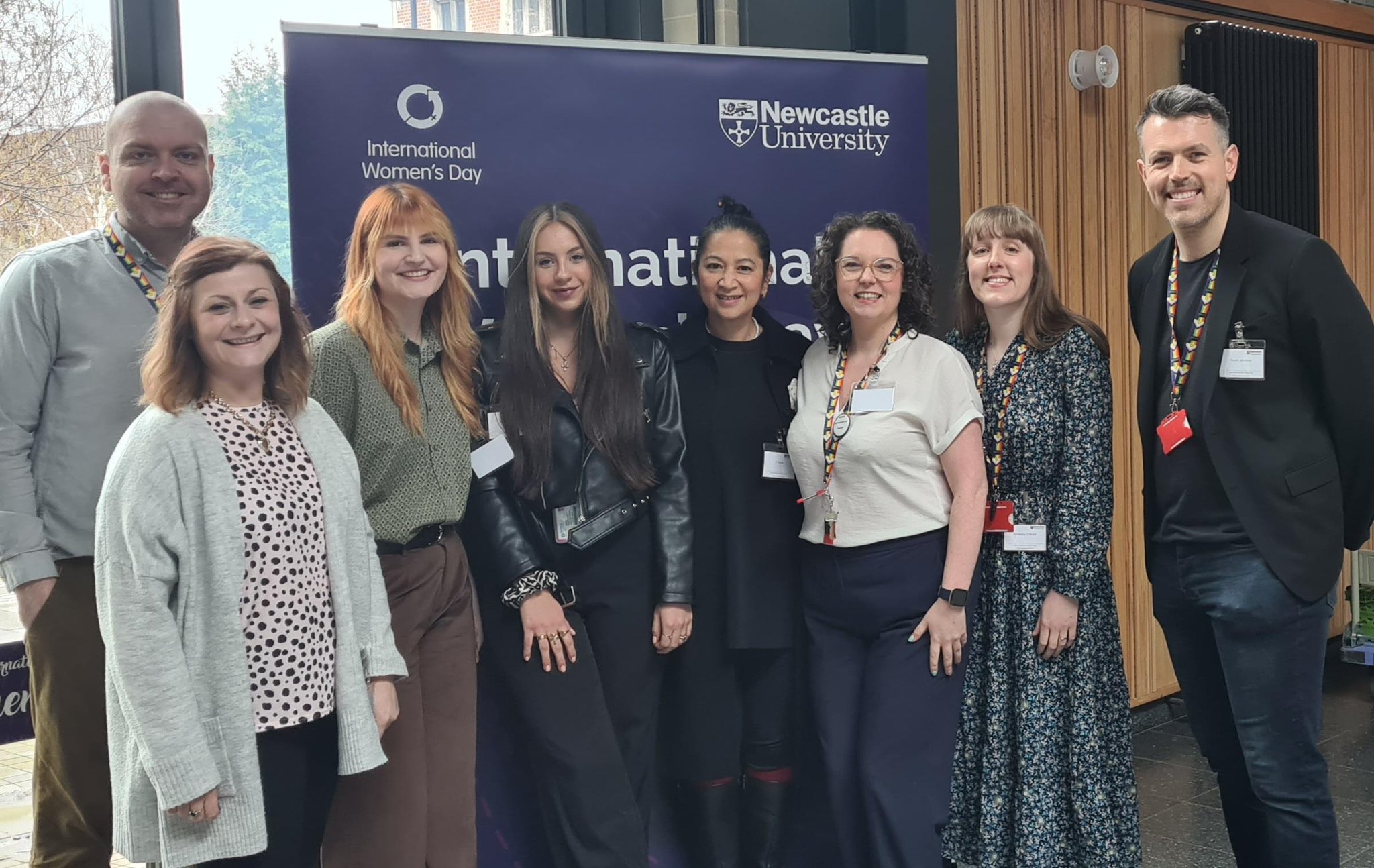
Again, I could not be more thankful for the help and support I received from Louise, Damian, Emma, Amy, Abbie, and the wider university EDI team throughout my time here. As a result of the placement and my additional part-time role, I have now secured a full time role to work in a local charity helping people from my community with their mental health using motivational techniques which will be invaluable to my career progression and development. I know that without my EDI experience I would not have been able to achieve this and am extremely grateful for everything I have taken away from my time as part of the team!


